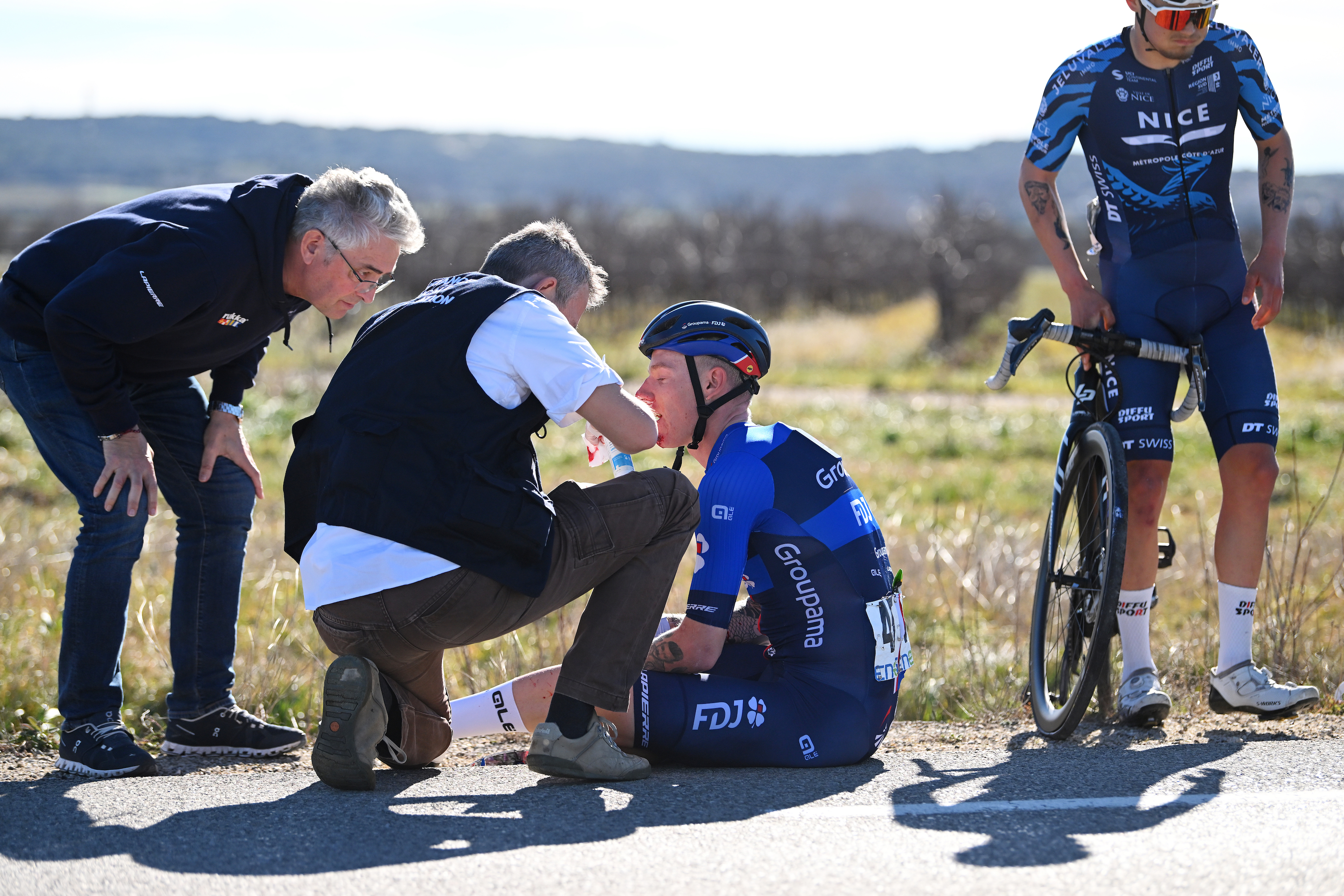'If in doubt, sit them out': British Cycling releases concussion guidance for riders
Anyone with even the mildest concussion symptoms will be advised to return to competition for at least 21 days


"If in doubt, sit them out" is the headline from British Cycling's first concussion guidance for its sanctioned events and recreational activities, published on Tuesday.
The suggested instructions, available on BC's website, are to immediately remove anyone with a suspected concussion from their cycling activity until appropriate treatment has been administered, and that they then should not ride on the same day.
Furthermore, in line with the Graduated Return to Play protocol, backed by multiple sports, a rider with any concussion symptoms should follow a progressive programme back to full activity and should not return to competition for at least 21 days.
Alongside the guidance, there is an infographic that those in the world of cycling can download and use, and an e-learning module on its website.
BC's Chief Medical Officer, Dr Nigel Jones, said in a press release that this was a "really positive step forward".
“In my time working with the Great Britain Cycling Team we’ve made excellent progress on educating riders, coaches and staff on the risks of concussion, and how we manage them appropriately to ensure that riders take the time they need to fully recover," he said.
“The guidance for the wider sport which we are publishing today is another really positive step forward, and with the support of our resources and e-learning I hope that we will start to bust some of those stubborn myths about concussion and give people in the sport the tools and knowledge they need to keep riders safe.
The latest race content, interviews, features, reviews and expert buying guides, direct to your inbox!
“The message is really clear – for the safety of the injured rider and those they are riding with, if in doubt, sit them out.”
Concurrently with the new guidance, BC's Technical Regulations have been amended to give commissaires and referees the power to withdraw a rider from an event if they believe that their participation would affect the safety of that rider or others.
The updated regulations state that riders must withdraw themselves before or during an event if they have sustained any injury which could affect their ability to participate safely, and if they fail to do so, a commissaire may withdraw them if they consider their participation would affect the safety of the rider and/or other riders in the event. This is particularly key in relation to concussion.
BC's acting CEO, Danielle Every, said that keeping riders safe was "our top priority".
“Recognising the importance of the issue, we’ve been through an incredibly rigorous and collaborative process to arrive at the guidelines published today," she said. "I want to thank our staff, volunteers and colleagues in the wider sector who have offered their invaluable insight and support.
“Keeping riders in our sport safe will always be our top priority, and we know that the level of understanding about concussion and its impact currently varies hugely across our communities. Our focus therefore now switches to ensuring that the guidelines, our digital learning offer and other resources are seen and shared far and wide.”

Adam is Cycling Weekly’s news editor – his greatest love is road racing but as long as he is cycling, he's happy. Before joining CW in 2021 he spent two years writing for Procycling. He's usually out and about on the roads of Bristol and its surrounds.
Before cycling took over his professional life, he covered ecclesiastical matters at the world’s largest Anglican newspaper and politics at Business Insider. Don't ask how that is related to riding bikes.